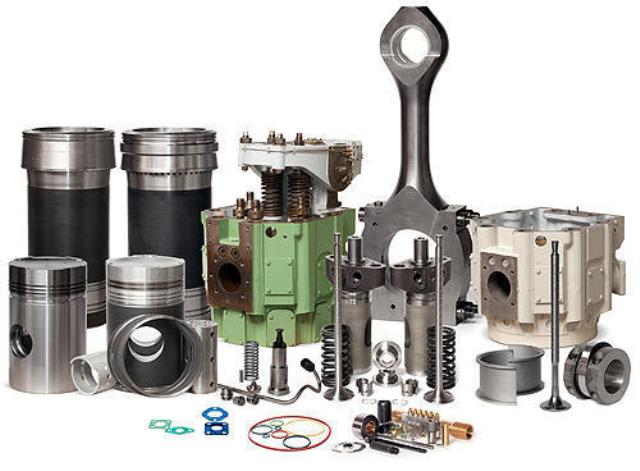Keeping your boat’s engine in top condition means understanding the spares you need, how to choose them, and best practices for maintenance. Whether you’re a weekend angler or a seasoned sailor, this guide will help you navigate the world of marine engine spares with confidence.
Table of Contents
ToggleImportance of Quality Spares
Marine engines work in demanding environments—saltwater corrosion, high humidity, and extended periods of idling can all take a toll. Installing high-quality spares is crucial for:
-
Reliability: Reducing unexpected breakdowns.
-
Performance: Ensuring optimal power delivery and fuel efficiency.
-
Longevity: Extending the life of your engine components.
Main Categories of Marine Engine Spares
Understanding the major types of spares helps you plan ahead and avoid last-minute scrambles.
1. Fuel System Parts
-
Fuel Lines & Hoses: Flexible, corrosion-resistant tubing.
-
Primer Bulbs & Filters: Ensure smooth fuel flow and trap contaminants.
-
Carburetor Rebuild Kits: Restore proper fuel-air mixture for consistent idling and acceleration.
2. Cooling & Lubrication Components
-
Water Pump Impellers: The heart of your cooling system—replace at first sign of wear.
-
Thermostats & Housing: Regulate engine temperature to prevent overheating.
-
Oil Filters & Seals: Keep oil clean and prevent leaks under high pressure.
3. Ignition & Electrical Spares
-
Spark Plugs & Coils: Critical for clean combustion; swap them out seasonally.
-
CDI Modules & Voltage Regulators: Maintain stable ignition timing and charging voltage.
-
Battery Cables & Terminals: Corrosion-resistant connectors ensure reliable starts.
4. Propulsion & Lower Unit Parts
-
Propellers & Pin Kits: Select the right pitch and diameter for your load and speed needs.
-
Gearcase Bearings & Seals: Prevent water ingress and maintain smooth gear shifts.
-
Shift Linkages & Cables: Ensure crisp, accurate gear changes under load.
How to Identify the Right Spare
-
Gather Engine Details
Note the make, model, year, and serial number. -
Locate Part Numbers
OEM part numbers on old components or in your engine’s manual make searching precise. -
Verify Compatibility
Cross-reference aftermarket spares with OEM specs to guarantee fit and performance.
Tips for Installation and Maintenance
-
Seal Replacement: Whenever you open the cooling or fuel system, replace all gaskets and O-rings to prevent leaks.
-
Seasonal Inspection: Check impellers, hoses, and belts at least once a year before high-use seasons.
-
Proper Lubrication: Use marine-grade grease on all moving fittings and connections to fend off corrosion.
-
Clean Fuel: Add a fuel stabilizer when storing your boat to prevent varnish buildup in the lines and carburetor.
Cost vs. Value Considerations
| Component | Typical Price Range | Expected Lifespan | Value Tip |
|---|---|---|---|
| Water Pump Impeller | $15 – $35 | 1–2 seasons | Replace annually; a failing impeller risks overheating. |
| Spark Plugs | $5 – $12 each | 100–200 hours | Change every season for reliable starts. |
| Oil Filter & Seal | $10 – $25 | 100 hours | Always use OEM or high-quality aftermarket. |
| Propeller | $75 – $300 | 2–3 years | Matching pitch to load improves fuel economy. |
Note: Prices vary by brand and region.
Avoiding Common Pitfalls
-
Guesswork Avoidance: Never assume compatibility—always check part numbers or consult an expert.
-
Delay Repairs: A small leak or odd noise often signals impending failure; address issues promptly.
-
Substandard Aftermarket Parts: While aftermarket options save money, choose reputable suppliers with good reviews.
When you need genuine, reliable marine engine spares delivered right to your dock, visit https://www.obparts.com and find the exact components your engine demands.
Equip your boat with the right parts today, and enjoy smooth, worry-free journeys on the water!









